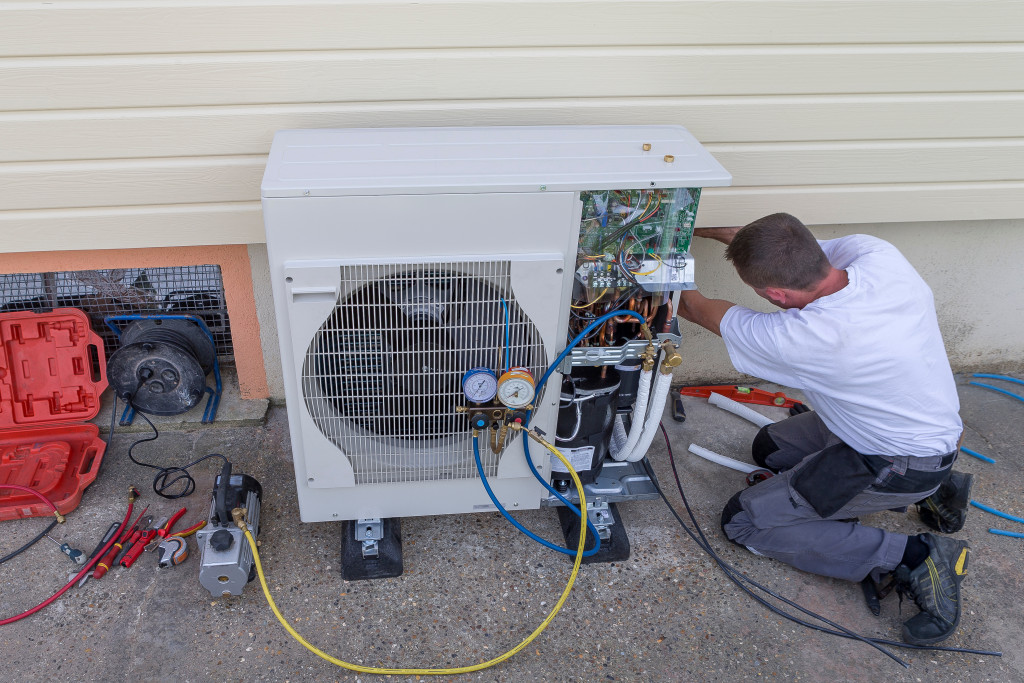Have you ever experienced a day at work when the temperature is just too cold that you can’t seem to think straight, and you can’t finish some of your tasks properly? That’s one of the many negative effects of freezing temperatures. Imagine if it gets colder than that, and you feel it right inside your home. Don’t worry. A heating system will prevent these side effects. To better understand that, this article will discuss the basic things you need to know about heating systems.
Importance of Heating Systems
You’re probably wondering at the moment why you should bother having a heating system at home. If you just moved in and haven’t experienced winter yet, we understand why you’re asking. As the climate situation worsens, you might want to ensure that your home remains a haven for you and your family. Below are some benefits you get from heating systems.
Comfort
For the same reason we’ve stated above, you want to ensure that your home remains warm despite the cold weather outside. Our homes are supposed to be safe places, and not having a heating system will significantly decrease the level of comfort we may experience while under our roofs.
Improved Air Quality
A cold temperature outside can cause too much moisture inside our homes. Because of this, mold can thrive in certain parts of the house and lessen the quality of the air we breathe. This can be prevented by having a heating system that prevents mold buildup.
Prevent Structural Damages
Another important reason you need a heating system is that you don’t want to spend your hard-earned money on repairs. While it’s true that you may spend quite a few hundred bucks on a heating system, it’s also true that you wouldn’t have to worry about structural damages caused by humidity in the air and condensation on your walls.
Avoid the Spread of Diseases Caused by Pests
Lots of insects thrive in warm weather conditions, especially mosquitoes. If your home is always humid, one of your biggest problems would be insects and pests roaming around. That’s one of the many reasons why you need a heating and ventilation system at home. By improving the air circulation, you can guarantee that there won’t be a place for insects to propagate. Furthermore, you can conveniently get rid of airborne contaminants, keeping your family safe.
Different Types of Heating Systems

Now that you’ve found out why a heating system is important, it’s time to dive into what your home is supposed to have. There are many heating systems, and we’ve listed some of your best and most common options below.
Furnace
Also called the forced air distribution system, a furnace is one of the most common heating systems. It got its name from its processes because a furnace would forcefully distribute heated or conditioned air throughout your home through air ducts. Most furnaces run on propane or gas, which is probably why people are hesitant to have them as they can be dangerous if they leak.
Boiler
The radiator distribution system, also known as a boiler, is exactly what its name suggests. It distributes steam from the central heating system throughout your home using a series of pipes. Maintenance and installation of boilers might take a while in a boiler heating system, but they are quite efficient in keeping your home warm. However, you want to ensure that your home’s structure and components can handle condensation and moisture, especially during the winter. Installing flooring meant for boiler rooms will help keep your home safe from structural damages.
Heat Pump
If you want something more efficient and less expensive, the heat pump heating system has you covered. Instead of using natural gas or propane, heat pumps use electricity to distribute the heat inside a home. They are also frequently used for cooling purposes because they’re equipped with a refrigerant. However, if the area where you live sometimes has below zero temperature, a heat pump may not be as efficient.
Geothermal Heating System
While most of the heating systems we’ve mentioned so far generate heat by transferring outside air into your home, geothermal heating systems are different. This heating system uses the heat or energy from the ground to provide your home with enough heat to withstand freezing climates.
Our homes are prone to extreme weather conditions that can reduce the integrity of their structures. Furthermore, constant exposure to coldness or heat might be detrimental to our family’s health. If you wish to keep your house safe from damages and prevent illnesses or discomfort in your family, make sure that you have a heating and ventilation system installed.

